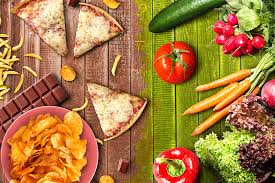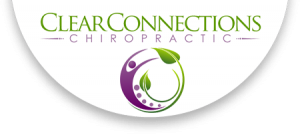Intuitive Eating
When you walk up and down the diet and cookbook section in a bookstore, you are going to find hundreds of books that seemingly contradict each other while also promising the same exact results. They often guarantee an “easy” transition into their diet that 
Fast forward a few weeks, or even a few months, and we are left unsatisfied, hungry, tired, and craving the foods that we swore off when we started the new “diet”. Before we know it, we cave in, fall off the bandwagon, and question our willpower and commitment. Why did this happen, yet again? Why can’t we just follow the plan?
Nutrition is No Exception…
We live in a world that loves extremes, quick fixes, and outlandish promises. Nutrition is no exception. A book on how to lose 10 pounds in 10 days is going to sell more than a book that talks about integrating a more intuitive, healthy diet over a long period of time. In reality, a healthy diet needs to be individualized and balanced in order for it to be attainable, long-lasting, and effective.
Bio-individuality is the idea that each one of us has unique food and lifestyle needs. A way of eating that one person thrives on might not bring the same result to someone else. We all have different needs, taste buds, allergies, cravings, likes, and body types. On top of that, we vary from other people based on factors like our upbringing, ethnicity, geographical location, gender, exercise routine, sleep, goals, and age. And finally, we ourselves change overtime based on our stage in life, activity level, stress levels, and so on. Our diets need to reflect these differences in order to supply our individual bodies with what they need.
Whole Foods Vs. Processed Foods
There are a few nutritional baselines that can be a guide to helping us create our own personal food sketch. In general, whole foods are the way to go. Whole foods are described as one ingredient foods grown from the ground or raised in a pasture – think 
Then, there are foods that are not the best choice for a nutritionally optimal diet, and are best consumed on occasion. These are the processed foods that you think of when you imagine packaged food, fast food, and sometimes restaurant food. They are foods that have a laundry list of ingredients that are unidentifiable and are often laden with sugars, dyes, artificial flavors, chemicals, additives, food stabilizers, excessive amounts of salt etc. While these are often super delicious, they also don’t always add a whole lot of nutritional benefits. But, both whole foods and processed foods have a place in our diet. While whole foods should make up the base of our meals, processed foods should never be totally excluded. Cake should be enjoyed occasionally without guilt, eating at your favorite restaurant should be a celebration, and having a small treat at the end of the day might just be a part of your self-care routine. Deprivation and setting foods up as “off limits” feed the binge/guilt/diet cycle.
Individualized Nutrition
This is where intuitive eating comes in. While it is much easier to adopt black and white rules for eating, finding our own way of eating takes time, energy, and mental capacity upfront, but it doesn’t send us through that never-ending diet cycle that we can find 
Finding your own balance in nutrition is going to take time and effort, but the end result is going to be so much more wholesome, delicious, and sustainable. Intuitive eating should of course bring health, but it should also bring genuine excitement and fulfillment as well. So leave the fad diets, restrictive food rules, and negative self talk behind. The only diet you can’t fail is the one that you make for yourself.
For more information on holistic nutrition, click here!
To take your health and wellness even one stop further, set up an appointment with Clear Connections Chiropractic today!
We also want to take a moment to thank Leah Haggard, our guest blogger for today!! Join us on September 5th at 6:45 pm for even more information on this topic! RSVP today!
